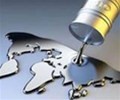

This is a really tough question because it depends on where one stands in relation to the answer.
Consumers in a developed or emerging economy will always blame Saudi Arabia for any price hikes in gasoline. They will say that the Organization of the Petroleum Exporting Countries (OPEC) and its de facto leader Saudi Arabia are not doing a great job because their interests are not aligned with the producer group’s interests.
Producers of oil and gas in OPEC, the US, Canada, Brazil, and anywhere else would appreciate everything that Saudi Arabia has done through the years, especially during the pandemic. Saudi Arabia always ensured that oil prices were at levels that met producers’ and consumers’ interest simply by balancing the market.
Speculators, traders and hedge fund managers should be thankful for the stability that Saudi Arabia adds to the market by keeping initially OPEC, and later on OPEC and its alliance with other producers in line.
Everyone is trading and hedging knowing that Saudi Arabia will do everything it takes to keep the market well supplied and stable.
Petroleum media, now that’s a tricky one since the media in theory focuses on conflicts and uses sensationalism to spur debate about OPEC and Saudi Arabia’s role to keep readers hooked to their stories.
Also, since many of the leading international media organizations are based in oil-consuming nations, it is clear that they cannot go against the crowd and praise OPEC or Saudi Arabia when the price at the pump is escalating. However, newswires are a little different than newspapers in their coverage and less biased.
Petroleum publications ought to be the most reliable in covering the oil market and OPEC as they have no general readers and their target audience already knows enough about the market’s dynamics and who is doing what.
So why am I saying all of this? Is it because of the recent comments from Mizuho Securities praising the Saudi management of the market?
When I saw the comments, I remembered what was said about Saudi Arabia last year when it started a price war during the pandemic at a time when oil hit a negative level.
It is no secret that Saudi Arabia and Russia did not reach an agreement after the latter argued that all producers should open the tap. That is not Saudi Arabia’s approach to the market, and the result was a price war that brought everyone in order again.
When Saudi Arabia started the price war to bring everyone back to the negotiating table, I heard from many who were doubting the ability and credibility of the Kingdom to lead the oil market. Media, analysts, and oil executives held the same fears.
If oil prices are the only indicator on which to judge the success of Saudi Arabia then we would agree that, as prices fluctuate, so do the opinions of the market participants.
This is not to say that Saudi Arabia does not make mistakes but for sure it works hard on fixing them and, sometimes, it takes additional unilateral and voluntary actions to achieve this. The reason for this is simply power, as with power comes greater responsibility. When it comes to balancing the market, it is always Saudi Arabia’s job, even if the Saudis do not want that.
What has changed nowadays is that Saudi Arabia works closely with Russia and others in OPEC+ to safeguard the interests of everyone in the market. This has affected the management style and quality of the decisions.
If I would praise anyone, I would praise the new Saudi thinking that led to this deep cooperation with OPEC+. So the answer to my question at the top is yes because the alliance is the source of stability and Saudi Arabia is playing its role well in this new international oil order shaped by OPEC+.
Source: Arab News